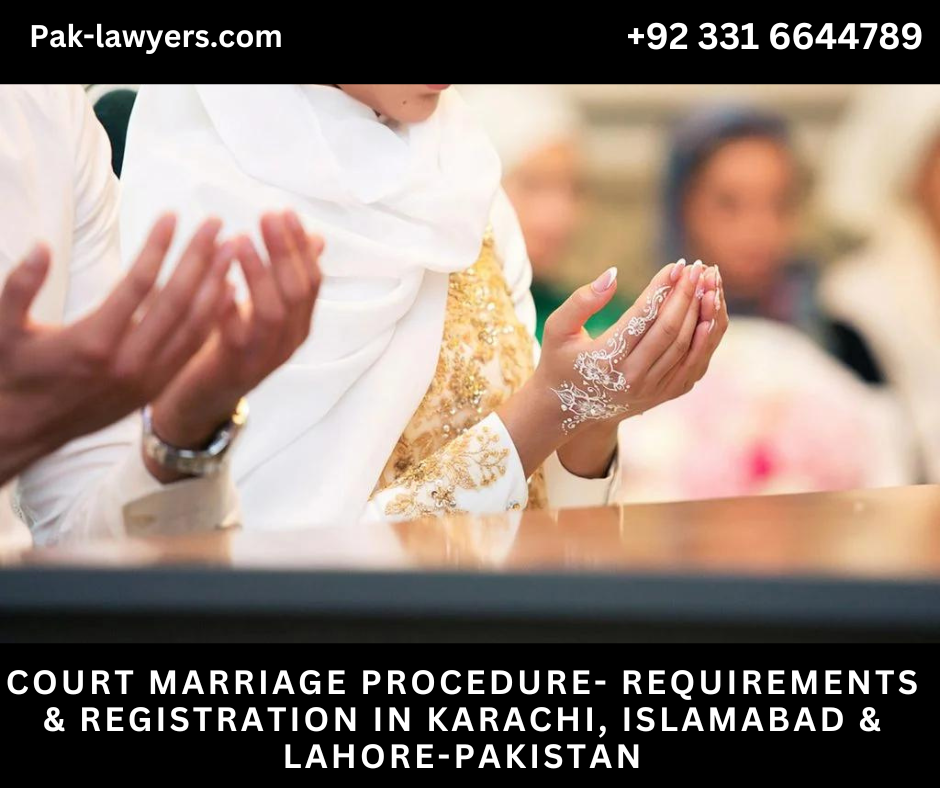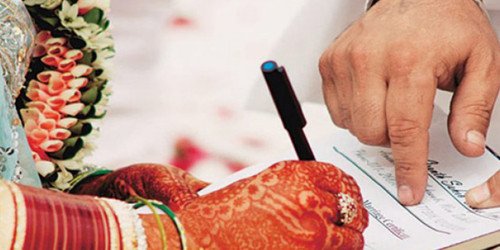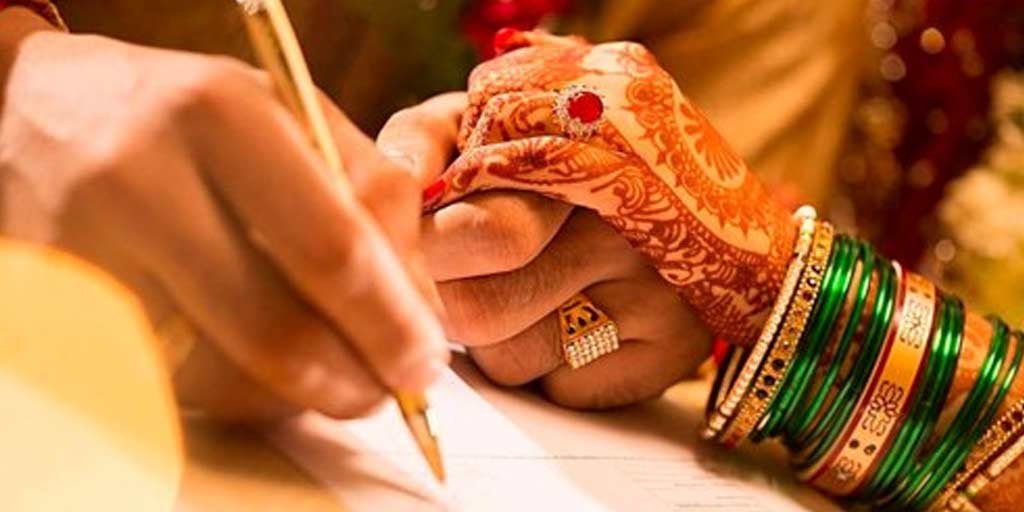Court Marriage in Lahore: Process & Cost of Court Marriage in Lahore, Pakistan
Court Marriage in Lahore: Our Best Services For Court Marriages in Lahore, Pakistan

Legal Service Offer For Court Marriages in Lahore
Court Marriage Services in Lahore by Pakistan Lawyers & Attorneys
Court marriage in Lahore is one of the specialized services offered by our esteemed law firm, Pakistan Lawyers & Attorneys, providing couples with a hassle-free and legally sound solution for their matrimonial needs. Our team of experienced lawyers ensures that the entire process, from documentation to the final legal formalities, is handled with professionalism and precision.
Personalized Court Marriage Services in Lahore: Swift, Secure, and Seamless Process
We take pride in offering personalized assistance, making sure that each court marriage is conducted following the legal framework of Pakistan. With our dedicated offices and expert staff in Lahore, we make the court marriage process swift, secure, and seamless for our clients, ensuring their complete satisfaction.
Court Marriage in Lahore: A Modern Path to Legal and Personal Autonomy
Court Marriage in Lahore: A Popular Alternative for Legal and Formal Unions in Modern Society
Court marriage in Lahore has gained considerable attention in recent years, emerging as a popular alternative to traditional marriage arrangements. It provides couples with a legal and formal way to unite, often bypassing the elaborate rituals associated with conventional ceremonies. This approach resonates particularly well in a modern society that increasingly prioritizes individual rights and personal choices.
Empowering Couples in Lahore: Legal Recognition and Autonomy Through Court Marriage
In Lahore, where cultural diversity thrives, court marriage is especially significant. It caters to couples who may face societal pressures or familial opposition regarding their choice of partner. By opting for a court marriage, these individuals can assert their autonomy and secure legal recognition of their relationship, which is essential for various rights and responsibilities.

Three Steps to the Court Marriage Process in Pakistan
Steps to court marriage: Court marriage begins when a couple (male or female) visits our court office in Lahore, Karachi, or Islamabad. The court marriage process begins with the Nikah Khawan and Matrimonial Lawyer.
- The bride signs an Affidavit for Free Will.
- After obtaining permission from the couple Nikah Khawan/Imam will solemnize Nikah using Ijab-o-Qabool (offer/acceptance) and recite Khhutba-e Nikah.
- The Nikah Nama is the marriage contract. Four copies are signed by the bride and groom. Two witnesses and Nikah Khawan sign the Nikah Nama. The Nikah Register signs the Nikah Nama (marriage contract) and attaches his official seal/stamp. AND THE COURT OF MARRIAGE IS COMPLETED
After the ceremony, our matrimonial attorney hand-over each copy of Nikah Nama to the groom and bride. For official records, one copy is sent to Union Council.
What is the Court Marriage Fee/Cost in Lahore?
Court marriages are not expensive. The court marriage fee is approximately 1/400 of traditional Pakistani traditional marriage ceremonies. In Lahore, various law firms charge a different court marriage fee depending on the circumstances of each case. It is usually between Rs.15,000 and Rs.40,000. Additional fees/costs may apply if someone needs a computerized Marriage Registration Certificate (publicly known as a NADRA Marriage Certificate).
What is a Nikah Nama or NADRA marriage certificate in Pakistan?
Prove Your Legal Marriage by Obtaining a Nikah Nama or NADRA Marriage Certificate
A Nikah Nama is a legal document that shows you are legally married. It is issued by the Government-deputed Nikah Register at the time you register your marriage and serves as proof that your spouse is legally married.
The Nikah Nama marriage certificate and NADRA divorce certificate provide all details regarding your wedding ceremony, including when and where it occurred, who was there, and any other relevant information to your marital status. This document is needed for official purposes such as applying for a visa abroad or proving your marriage. The NADRA marriage certificate proves that you are legally married. This certificate can be used to prove your marital status in any legal matter, including divorce or inheritance.
Our Legal Matrimonial Service for Court Marriage, Online Marriage and Nikah Khawans for Traditional Marriages In Karachi, Islamabad, Rawalpindi and Lahore (Pakistan).
Step-by-Step Process of Court Marriage in Lahore
A Simplified Guide to Court Marriage in Lahore: Legal Procedures and Essential Steps
Engaging in a court marriage in Lahore is a straightforward process that requires careful adherence to legal procedures. The journey begins with the submission of an application to the relevant authorities. Couples should choose an appropriate court—typically a family court—where they will register their marriage. It is advisable to arrive early, thereby ensuring that all necessary documents can be submitted without delay.
Essential Documents and Procedures for Court Marriage in Lahore: A Step-by-Step Guide
The essential documents required for court marriage include valid identity proofs such as CNICs for both partners, photographs, and, in all cases, an affidavit for the declaration of free will by the female partner. After Nikah, it is essential to confirm that the marriage is registered correctly, as this step secures legal recognition of the union. Typically, couples will receive a registered Nikah Nama (and if required, a marriage certificate) on the same day or the next day, although processing times may vary depending on the Nikah registrar’s workload.
Post-Ceremony Steps for Court Marriage in Lahore: Obtaining and Safeguarding Your Legal Documents
After the marriage ceremony and registration, it is wise to obtain multiple copies of the Nikah Nama and the marriage certificate for future use. Couples should also keep their documents safe, as they may be required for various legal procedures and official purposes. Throughout this process, it is crucial to maintain communication with our court marriage lawyer if any uncertainties arise, as they can provide guidance tailored to individual circumstances. By understanding these steps, couples can navigate the court marriage in Lahore effectively, ensuring a smooth and legally recognized union.
Costs Involved in Court Marriage in Lahore
Understanding the Costs of Court Marriage in Lahore: A Comprehensive Financial Guide
When considering court marriage in Lahore, it is essential to understand the various costs associated with the process. Court marriage typically involves several types of expenses, which can vary based on specific circumstances and the services required. A breakdown of these costs can help couples prepare financially and ensure a smooth transition into their new marital status.
Breakdown of Expenses for Court Marriage in Lahore: Nikah Fees, Registration, and Legal Costs
The primary expenses include Nikah Khawan/Imam’s Nikah fee, Nikah Registration fee, Union Council, and legal fees, which are paid to the lawyer who assists in the marriage registration process. Legal fees often range from PKR 20,000 to PKR 25,000, depending on the complexity of the case and the lawyer’s experience. In addition to legal fees, there are registration fees charged by the relevant authorities, which usually amount to approximately PKR 3,000. This fee is essential as it formalizes the marriage and grants the couple legal recognition.
Additional Costs to Consider for Court Marriage in Lahore: Documentation and Paperwork Expenses
Couples should also be aware of additional costs that may arise during the court marriage process. For example, there may be expenses related to obtaining documentation, such as CNIC copies, affidavit preparation, and other necessary paperwork. These costs can add up to another PKR 2,000 to PKR 5,000. Therefore, it is prudent to budget wisely for these potential expenses when planning for a court marriage in Lahore.
Cost-Effective Benefits of Court Marriage in Lahore: A Simplified Alternative to Traditional Weddings
In comparison to traditional marriage expenses, couples may find court marriage to be a more cost-effective option. Traditional weddings can incur significant costs, including venue rentals, catering, and attire, which can easily exceed PKR 1,000,000. By opting for court marriage, couples not only save on various expenses but also simplify the marriage process, allowing them to focus on their union rather than accumulating debt.
Court Marriage in Lahore: Redefining Marriage in Pakistan's Urban Landscape
The rise of court marriages reflects broader societal shifts in Pakistan, where traditional norms often dictate personal relationships. Young people are increasingly leaning towards court marriages to establish their unions free from societal constraints, which is particularly relevant in urban settings like Lahore. Here, it represents a break from tradition, allowing couples to define their paths in a manner that aligns with their aspirations.
Legal Protection and Benefits of Court Marriage in Lahore: Ensuring Rights and Recognition for Couples
Moreover, the legal framework governing court marriages in Lahore ensures that both parties’ rights are protected. It provides a structured approach to marriage registration, making it a reliable choice for couples. This legal recognition not only validates their relationship but also facilitates numerous benefits, such as spousal rights, inheritance, and legal standing.
Court Marriage in Lahore: A Modern and Legal Solution for Couples Embracing Personal Choice
In summary, court marriage in Lahore stands as a vital option for couples seeking a blend of legality and personal agency. With its growing acceptance, it plays a critical role in reshaping the narrative surrounding marriage in contemporary Pakistani society, offering a practical solution for those eager to embark on their married journey without the encumbrance of traditional systems.


Legal Framework and Requirements for Court Marriage
Understanding the legal framework surrounding court marriage in Lahore is essential for couples intending to formalize their union through this procedure. The law requires that both parties meet certain criteria to ensure that the marriage is recognized legally. One of the most important factors is the age of the individuals involved. In Pakistan, the legal age for marriage is 18 for females and males.
Mutual Consent and Legal Requirements for Court Marriage in Lahore: Ensuring a Voluntary Union
In addition to age restrictions, obtaining mutual consent from both parties is imperative. This means that both individuals must willingly agree to marry each other without any coercion. For evidence of this consent, couples are often required to provide identification documents, such as a national identity card or a passport.
Essential Paperwork and Legal Requirements for a Smooth Court Marriage Process in Lahore
Another important aspect of the court marriage process in Lahore involves the paperwork that must be completed before the marriage ceremony.
Lastly, understanding the legal requirements is vital for ensuring a smooth marriage process. Couples who familiarize themselves with the necessary documentation and regulations will be better equipped to navigate the court marriage process in Lahore.
Advantages of Court Marriage Over Traditional Arranged Marriages
In recent years, court marriage in Lahore has gained significant attention as an alternative to traditional arranged marriages. One of the primary advantages of choosing court marriage is the emphasis on personal choice. Unlike arranged marriages, where families often play a pivotal role in selecting partners based on various factors, court marriages allow individuals the autonomy to choose their partners. This freedom leads to greater satisfaction and is particularly appealing to young couples seeking genuine connections based on mutual affection.
Furthermore, court marriage tends to impose fewer societal pressures. Traditional arranged marriages often come with expectations and responsibilities that can overshadow the couple’s relationship. In contrast, when couples opt for a court marriage, they can establish their own terms without feeling constrained by cultural or familial obligations. This aspect also minimizes the stress associated with meeting societal norms and allows couples to focus on building their relationship.
Another significant advantage is the legal protections that court marriage provides to couples. Unlike informal arrangements, a court marriage offers legal validation, which is vital in safeguarding the rights of both partners. This legal recognition not only grants couples the status they deserve but also simplifies issues related to property, inheritance, and other legal matters. In a society where legal safeguards can be critical, this is a vital consideration for couples contemplating their future together.
Finally, the court marriage process enhances the potential for compatibility between partners. By allowing couples to select their spouses based on love, compatibility, and shared values, the likelihood of a successful and harmonious union increases significantly. Many individuals find that marriages rooted in mutual understanding and consent lead to greater happiness and stability. Consequently, as societal attitudes evolve, more couples are gravitating towards the notion of court marriage in Lahore as a modern and pragmatic choice for their matrimony.
Cultural Perspectives on Court Marriages in Pakistan
Court marriage in Lahore, as well as in other parts of Pakistan, stands at the intersection of tradition and modernity, significantly influencing cultural attitudes. Historically, marriage in Pakistan has adhered to traditional customs and family arrangements, where the role of parents in deciding marital unions is paramount. However, court marriage increasingly emerges as a personal choice, reflecting shifts in societal norms, particularly among urban populations.
Within various communities, perceptions of court marriage vary widely. On one hand, it is praised for empowering couples to make autonomous decisions regarding their relationships, free from familial pressure. Young individuals increasingly view court marriage in Lahore as a pathway to personal freedom, allowing them to marry for love rather than obligation. This trend signifies a progressive shift, particularly among the youth, who often seek to create their own narratives in contrast to traditional practices.
Conversely, there exists a segment of society that still regards court marriage with skepticism. In some conservative circles, such unions are perceived as undermining familial structures and cultural values, which advocate for arranged marriages. This resistance is often rooted in concerns over the potential repercussions court marriages may have on family honor and social reputation. Additionally, the lack of awareness and misinformation about the legal framework surrounding court marriage can further contribute to these negative sentiments.
Nevertheless, many couples are successfully navigating these societal expectations. They often engage in open discussions with their families, sharing their perspectives on the benefits of court marriage in Lahore, such as individual choice, legal recognition, and the removal of coercive societal pressures. By framing their choices within the context of mutual respect and understanding, these couples are gradually reshaping cultural perceptions, paving the way for broader acceptance of this form of marriage.
Challenges Faced by Couples in Court Marriages
Embarking on a court marriage in Lahore can be an exciting decision for many couples, representing independence and a commitment to each other. However, it is not without its challenges. One of the foremost difficulties that couples encounter is the issue of family acceptance. Families in Lahore often hold traditional values that emphasize arranged marriages and can view court marriages with skepticism. This can lead to substantial pressure on the couple, as family acceptance plays a pivotal role in their overall social and emotional well-being.
In addition to familial challenges, societal stigma serves as another significant barrier. Couples may face judgment and disapproval from a community that may not fully understand or accept the concept of court marriage. This stigma can manifest in various forms, such as ostracization or verbal criticism from peers and relatives. The fear of societal backlash can deter many from pursuing a court marriage, as the concerns about social reputation can weigh heavily on their minds.
Legal hurdles can also emerge following a court marriage in Lahore. Despite the streamlined process of obtaining a marriage certificate, couples may encounter bureaucratic obstacles that complicate matters, particularly if there are disputes concerning legal documentation or residency issues. Additionally, if the marriage is not recognized by certain family members or social circles, the couple may find themselves battling for recognition not only in the eyes of the law but also within their community.
Real-life experiences shared by couples reveal that open communication and support networks can be vital in overcoming these challenges. Engaging in discussions with family members, seeking the counsel of friends who support their decision, and being prepared to confront societal norms head-on can help couples navigate the difficulties inherent in court marriages. By confronting these hurdles with resilience, couples can forge a path toward a successful union that aligns with their values and aspirations.
Future of Court Marriage in Lahore and Beyond
The landscape of court marriage in Lahore is witnessing significant evolution, driven by societal changes, legal reforms, and an increasingly accepting attitude towards love marriages. As traditional views on marriage gradually shift, there is a palpable movement toward more modern marriage practices, marking a departure from conventional norms.
One of the key trends influencing the future of court marriage is the growing acceptance of personal choice in partner selection. Young people today are more inclined to pursue relationships based on love and compatibility, rather than societal pressure or familial arrangements. This shift is not just limited to Lahore but resonates across Pakistan, with more couples choosing to opt for court marriages as a means to formalize their unions without the traditional constraints. Such a trend could lead to an increase in the number of court marriage registrations in the coming years.
Additionally, legal reforms aimed at simplifying the court marriage process will likely contribute to its popularity. Efforts by the government and non-governmental organizations are ongoing to streamline regulations surrounding marriage registration, making it easier for couples to navigate the legalities involved. Improved access to information and resources about court marriage in Lahore could result in greater awareness among the populace. As people become more informed about their rights and options, they are likely to feel empowered to pursue court marriages.
Moreover, the impact of social media in shaping perceptions of marriage is also notable. As online discussions and portrayals of court marriages gain traction, more individuals may begin to view this option as legitimate and appealing. In this context, it is conceivable that court marriages will become increasingly mainstream, reshaping societal attitudes toward love and partnership.
In conclusion, the future of court marriage in Lahore and throughout Pakistan appears promising, as emerging trends and progressive reforms redefine the institution of marriage, supporting individuals’ rights to choose their partners freely.

Lorem ipsum dolor sit amet, consectetur adipiscing elit. Ut elit tellus, luctus nec ullamcorper mattis, pulvinar dapibus leo.

